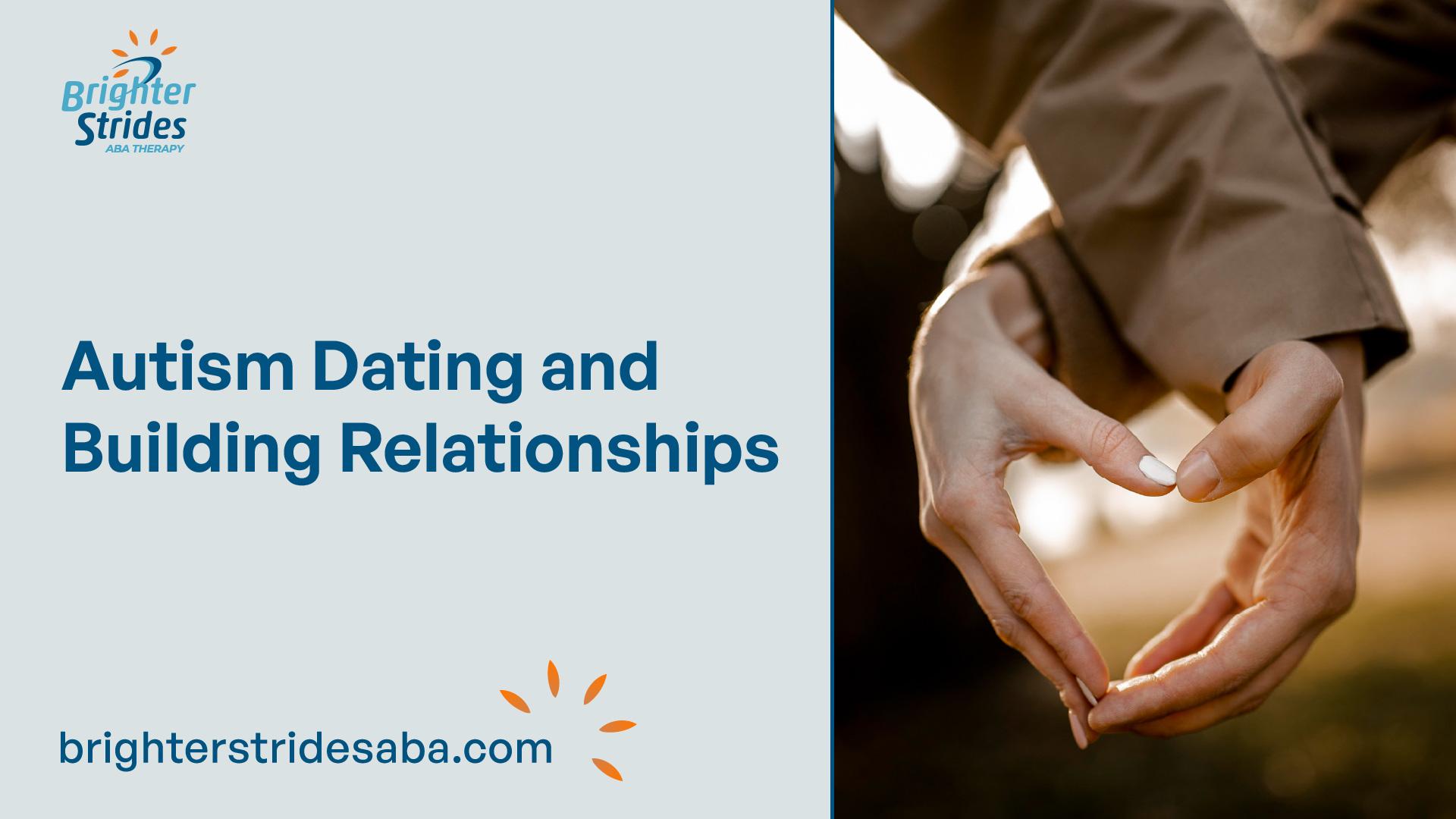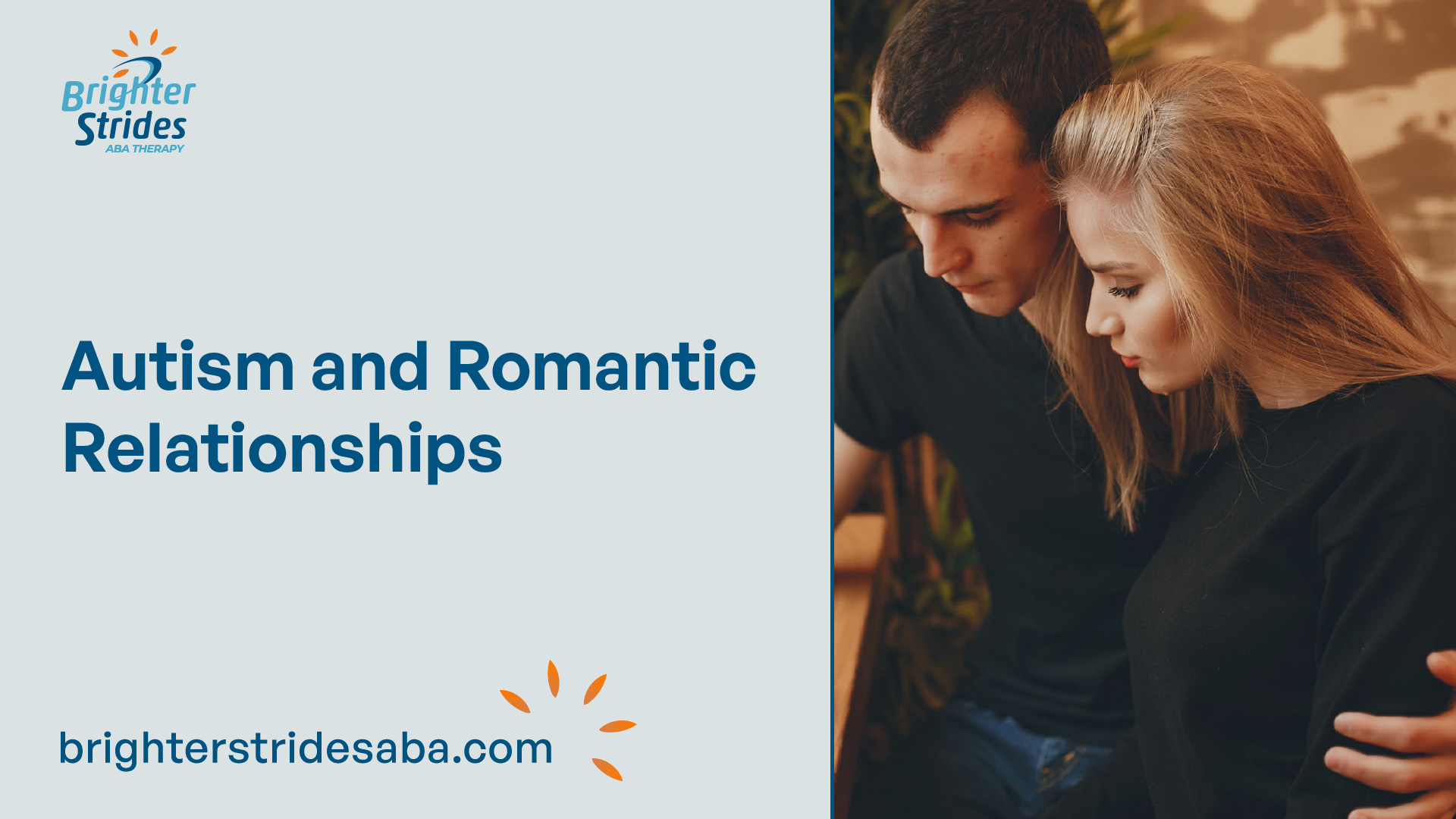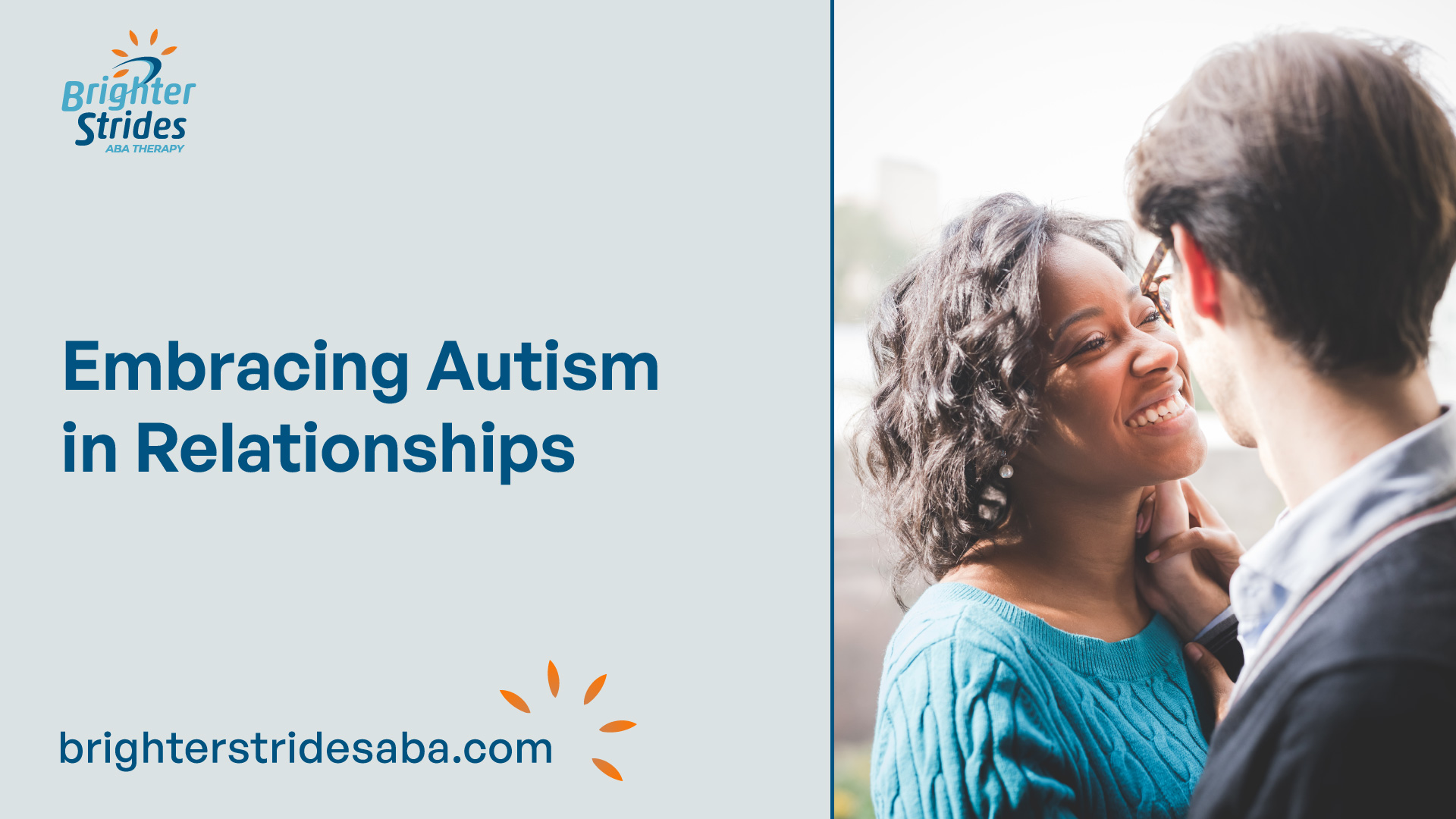
Understanding Autism Dating
Navigating the world of dating can be complex, and for individuals on the autism spectrum, it comes with its own unique set of considerations. Understanding autism dating involves recognizing the specific challenges faced by individuals with autism and the importance of fostering romantic relationships in their lives.
Autism and Romantic Relationships
Autism Spectrum Disorder (ASD) is a neurodevelopmental disorder that affects communication, social interaction, and behavior. It is a spectrum disorder, meaning that individuals with ASD can vary greatly in their strengths, challenges, and levels of impairment. People on the autism spectrum, like everyone else, desire love, companionship, and romantic relationships. They have the capacity to form deep connections and experience fulfilling relationships.
Individuals with ASD may exhibit a range of common characteristics, which can manifest differently in each person. These characteristics may include difficulties with social interaction, communication challenges, sensory sensitivities, and differences in processing information. It’s important to remember that each individual on the autism spectrum is unique, and their experiences and abilities may differ.
Challenges in Autism Dating
Dating can be challenging for anyone, but individuals on the autism spectrum may face additional obstacles. Communication can be a significant area of challenge for individuals with autism. They may struggle with understanding social cues, nonverbal communication, and figurative language, which can impact their ability to navigate the nuances of dating interactions.
Moreover, individuals on the autism spectrum often have unique sensory sensitivities. They may be hypersensitive or hyposensitive to certain sensory stimuli, such as noise, touch, or light. These sensitivities can influence their comfort levels and preferences in various dating scenarios.
Building relationships requires trust and security, and this holds particular significance when dating someone on the autism spectrum. Trust is established through consistent actions, honesty, and reliability. It’s important to create an environment where individuals with autism feel safe and understood, as this can help foster a strong foundation for a successful relationship.
Understanding the unique challenges faced by individuals on the autism spectrum is essential for creating inclusive and supportive dating environments. By being aware of these challenges, we can work towards building more inclusive dating platforms and facilitating meaningful connections for those with autism.

Autism Dating Resources
When it comes to autism dating, there are several resources available that cater specifically to individuals on the autism spectrum. These resources provide platforms and services designed to facilitate meaningful connections and relationships. Here are some notable autism dating resources:
Autistic Empathy App
The Autistic Empathy app is a dating and friendship app specifically tailored for autistic individuals. It provides a safe and inclusive space for individuals on the spectrum to connect with others who understand their unique experiences and challenges. The app aims to foster meaningful connections and relationships by bringing together like-minded individuals.
Undateables Dating Site
The Undateables dating site is a unique platform that caters to individuals who may feel uncomfortable in traditional offline dating situations. It aims to provide a supportive and understanding environment for singles, including those with autism. The site helps individuals connect with like-minded individuals who appreciate and embrace their individuality.
Luv2meetU Friendship Service
Luv2meetU is a friendship and relationship service that focuses on enhancing the overall health and well-being of adults with learning disabilities and/or autism. The service aims to create opportunities for individuals to develop meaningful friendships and potentially find romantic connections. Luv2meetU organizes various social events and activities to facilitate interactions and foster relationships.
Hiki App for Autism Community
The Hiki app is specifically designed for the autism community, providing a safe and welcoming space for individuals to find friendship, love, and be themselves. It functions as both a friendship and dating app, allowing users to connect with others who share similar interests and experiences. The app is dedicated to creating a supportive community for individuals on the spectrum.
Safe Soulmate In-Person Meetups
Safe Soulmate organizes in-person meetups in various locations, including Cambridge, Ely, Huntingdon, and Peterborough. These meetups provide opportunities for adults to safely meet new people, socialize, and potentially find friendships or love. The events are designed to create a supportive and inclusive environment where individuals on the autism spectrum can connect with others.
These autism dating resources offer valuable platforms and services that cater to the unique needs of individuals on the autism spectrum. Whether it’s through online platforms or in-person meetups, these resources aim to provide a supportive and understanding environment for individuals to connect, build relationships, and explore the possibilities of love and companionship.

Tips for Autism Dating
Dating can be a complex and challenging experience for individuals on the autism spectrum. However, with the right strategies and understanding, it is entirely possible to have successful and fulfilling relationships. Here are some valuable tips for autism dating:
Building Trust and Security
Building trust and a sense of security is vital in any relationship, and it holds even more significance when dating someone on the autism spectrum. Trust is established through consistent actions, honesty, and reliability. Here are some tips to foster trust:
- Be consistent in your words and actions.
- Be open and honest about your feelings and intentions.
- Respect personal boundaries and communicate them clearly.
- Show empathy and understanding towards your partner’s needs and challenges.
- Be reliable and follow through on your commitments.
Communication Strategies
Communication can be a significant area of challenge for individuals on the autism spectrum. Some common communication challenges include difficulty with social cues, nonverbal communication, and understanding figurative language. To enhance communication in an autism dating scenario, consider the following strategies:
- Be clear and explicit in your communication. Use simple and direct language.
- Be patient and allow your partner time to process information and express themselves.
- Practice active listening and show genuine interest in what your partner has to say.
- Use visual aids, such as written or visual cues, to facilitate understanding.
- Be aware of nonverbal cues and body language, and communicate your own intentions clearly.
Understanding Sensory Sensitivities
Individuals on the autism spectrum often have unique sensory sensitivities. They may be hypersensitive or hyposensitive to certain sensory stimuli, such as noise, touch, or light. To create a comfortable and accommodating environment, consider the following:
- Respect your partner’s sensory sensitivities and be mindful of their triggers.
- Communicate openly about sensory sensitivities and find ways to accommodate them.
- Create a calm and quiet space for your partner when needed.
- Be understanding and supportive if your partner needs breaks or time alone to manage sensory overload.
By implementing these tips, individuals on the autism spectrum can navigate the challenges of dating more effectively. Remember that every person is unique, and it’s important to approach dating with patience, empathy, and a willingness to learn and grow together.
Insights for Neurotypical Partners
When it comes to dating individuals on the autism spectrum, neurotypical partners may benefit from gaining insights and understanding to foster a successful and meaningful relationship. Dr. Tasha Oswald, a clinical professional, offers valuable perspectives through her blog series, “Dating on the Autism Spectrum,” which serves as a resource for neurotypical partners interested in understanding and supporting their autistic partners.
Dr. Tasha Oswald’s Blog Series
Dr. Tasha Oswald’s blog series, “Dating on the Autism Spectrum,” provides neurotypical partners with a deeper understanding of dating individuals on the autism spectrum. This series reflects a commitment to providing educational support and offers valuable insights into the unique experiences and perspectives of autistic individuals in relationships. Through her blog series, Dr. Oswald addresses various aspects of autism dating, including communication, sensory sensitivities, and navigating challenges.
Importance of Psychoeducation
Psychoeducation plays a vital role in supporting neurotypical partners in dating individuals on the autism spectrum. It involves providing information and guidance on topics such as boundary setting, consent, and self-worth related to dating. Equipping neurodiverse individuals with knowledge and skills empowers them to disengage from unwanted online interactions, make informed decisions about pursuing relationships, and maintain their personal safety.
Navigating Online Dating Challenges
Online dating can present unique challenges for individuals on the autism spectrum. A survey conducted by Roth and Gillis in 2015 found that safety concerns were the most commonly reported issue for autistic individuals in online dating. The difficulties in understanding social conventions and negative social experiences contribute to this concern. Neurotypical partners can provide support by assisting in deciphering profiles, identifying potential risks, and helping autistic individuals navigate the complexities of online dating. Seeking advice or review from peers can be valuable in creating an accurate dating profile and avoiding potential scams or deception.
By exploring resources like Dr. Tasha Oswald’s blog series, emphasizing the importance of psychoeducation, and assisting in navigating online dating challenges, neurotypical partners can foster understanding, empathy, and build successful relationships with individuals on the autism spectrum. Remember, every individual is unique, and open communication, patience, and willingness to learn are essential for nurturing a strong and fulfilling connection.
Addressing Autism Stigma
Autistic individuals often face stigma, which encompasses ignorance, prejudice, and discrimination. The impact of stigma on autistic individuals can be far-reaching, affecting their mental and physical health, reducing social connections, and leading to the increased “camouflaging” of autistic traits. It is important to recognize that stigma is not only experienced by autistic individuals but also by their family members.
The experience of autism stigma is primarily influenced by the public and professional understanding of autism and how visible autistic traits are interpreted. Factors such as the quality and quantity of contact with autistic individuals, cultural factors, sex and gender, individual differences, and diagnostic disclosure also play a role in moderating the relationship between understanding and stigma.
A lack of understanding about autism can contribute to negative views of visible autistic traits. Misinformation and incorrect knowledge about autism are prevalent among the general public and healthcare professionals. Negative valence of knowledge, as well as attributing unfavorable traits to autism, further contribute to the perpetuation of stigma.
Autistic individuals may face challenges in various areas of life, including education, employment, social integration, and bullying. These difficulties are influenced not only by their autistic traits but also by negative societal responses to autism. These experiences can significantly impact the quality of life for autistic individuals [4].
To address and reduce autism stigma, several strategies can be implemented. Creating “autism-friendly” spaces that promote inclusivity and understanding is essential. Positive media representation of autistic individuals can help challenge stereotypes and misconceptions. Improving autism education for both the general public and professionals can enhance understanding and reduce stigma. Supporting the concept of neurodiversity, which recognizes and values the differences of individuals on the autism spectrum, is also crucial. It is important to involve the autistic community in research and initiatives aimed at reducing stigma, ensuring that their voices and perspectives are heard [4].
By addressing and actively working to reduce autism stigma, society can create a more inclusive and accepting environment for autistic individuals. Through education, awareness, and fostering positive attitudes, we can contribute to a world where autistic individuals are valued and supported, enabling them to thrive in their personal lives, relationships, and pursuits.
Supporting Autism Dating
When it comes to supporting individuals with autism in the realm of dating, various strategies and resources can play a vital role. In this section, we will explore several ways to provide support and foster meaningful connections for those navigating autism dating.
The PEERS® Program
The PEERS® program, designed for adolescents and young adults, offers a comprehensive curriculum aimed at teaching essential social skills, including those related to dating and relationships. This program covers a wide range of topics, including making friends, initiating and maintaining conversations, handling conflicts, and understanding dating etiquette. By participating in the PEERS® program, individuals with autism can develop the necessary skills to navigate the complexities of dating [5].
Enrolling in Community Activities
Enrolling autistic individuals in various community activities and events based on their areas of interest and strengths can be a valuable way to support their dating journey. By participating in activities aligned with their passions, individuals with autism have the opportunity to meet others who share similar interests. Engaging in these shared activities can provide a common ground for building connections and practicing social skills. It allows individuals to focus on topics they are genuinely enthusiastic about, fostering the potential for meaningful relationships [5].
Role Play and Behavior Skills Training
Role play and behavior skills training (BST) are effective techniques for helping individuals with autism develop and maintain relationships. BST involves providing instruction, modeling the desired behavior, offering opportunities for practice, and providing feedback. Through role play exercises and BST, individuals can learn and practice social skills, such as active listening, nonverbal communication, and conflict resolution. These techniques provide a safe environment for individuals to experiment with different social scenarios and enhance their social interaction abilities. Kinark Autism Services offers virtual parent education sessions on BST, providing families with valuable tools to support their loved ones in their dating journey.
Utilizing Technology for Social Interactions
Technology plays a significant role in facilitating social interactions for individuals with autism. Virtual groups, online communities, and social media platforms offer opportunities for connecting with others, practicing social skills, and building relationships. These digital platforms can create a more comfortable and less overwhelming environment for individuals who may experience sensory sensitivities or social anxiety in face-to-face interactions. By utilizing technology, individuals with autism can engage in social interactions, expand their social networks, and gain valuable experience in navigating relationships from the comfort of their own homes.
By utilizing resources such as the PEERS® program, enrolling in community activities, incorporating role play and behavior skills training, and leveraging technology for social interactions, individuals with autism can receive valuable support and guidance in their dating journey. It is essential to provide a nurturing environment that encourages personal growth, social connection, and the development of meaningful relationships.
Embracing Autism in Relationships
When it comes to autism dating, understanding Autism Spectrum Disorder (ASD) is fundamental. ASD is a neurodevelopmental disorder that affects communication, social interaction, and behavior. It is a spectrum disorder, meaning that individuals with ASD can vary greatly in their strengths, challenges, and levels of impairment.
Understanding Autism Spectrum Disorder
Autism Spectrum Disorder is typically diagnosed during early childhood, but its impact can be lifelong. Individuals with ASD may exhibit a range of common characteristics, which can manifest differently in each person. Communication can be a significant area of challenge for individuals on the autism spectrum. Some common communication challenges include difficulty with social cues, nonverbal communication, and understanding figurative language. Additionally, autistic individuals often have unique sensory sensitivities, being hypersensitive or hyposensitive to certain sensory stimuli such as noise, touch, or light.
Unique Approaches to Relationships
When it comes to autism dating, it’s important to recognize that each individual on the autism spectrum has their own unique approach to relationships. It’s crucial to respect their boundaries, preferences, and comfort levels. Autistic individuals may have different communication styles and may express affection and emotions in ways that are distinct from neurotypical individuals. Embracing these differences and taking the time to understand and appreciate their perspective can help foster a stronger connection.
Strategies for Successful Dating
Successful dating with autism involves employing strategies that cater to the specific needs and preferences of individuals on the autism spectrum. Here are a few key strategies to consider:
- Building Trust and Security: Building trust is crucial in any relationship, and it holds even more significance when dating someone on the autism spectrum. Trust is established through consistent actions, honesty, and reliability. Providing a safe and supportive environment can help autistic individuals feel secure and comfortable in the relationship.
- Communication Strategies: Effective communication is essential for a healthy relationship. When communicating with an autistic partner, it’s important to be patient, clear, and direct. Using visual aids, social stories, or written communication can assist in conveying information in a way that is easily understood. It’s also important to actively listen and validate their feelings and experiences.
- Understanding Sensory Sensitivities: Sensory sensitivities are common among individuals on the autism spectrum. Being aware of and accommodating these sensitivities can greatly enhance the dating experience. This may involve creating a calm and quiet environment, using soft lighting, or avoiding overwhelming sensory stimuli during dates.
By understanding Autism Spectrum Disorder, embracing unique approaches to relationships, and employing strategies for successful dating, individuals can foster meaningful connections and create fulfilling relationships with autistic partners. It is important to approach autism dating with empathy, respect, and a willingness to learn and grow together.
References
- https://www.supportivecareaba.com/aba-therapy/dating-someone-with-autism
- https://opendoorstherapy.com/dating-on-the-autism-spectrum-notes-for-neurotypical-partners/
- https://autismspectrumnews.org/online-dating-and-neurodiversity/
- https://www.ncbi.nlm.nih.gov/pmc/articles/PMC8992913/
- https://kinarkautismservices.ca/autism/love-beyond-neurotypicality-how-to-support-young-adults-on-the-spectrum-in-the-dating-world/

 We've just released an article! Check out our blog!
We've just released an article! Check out our blog! 


